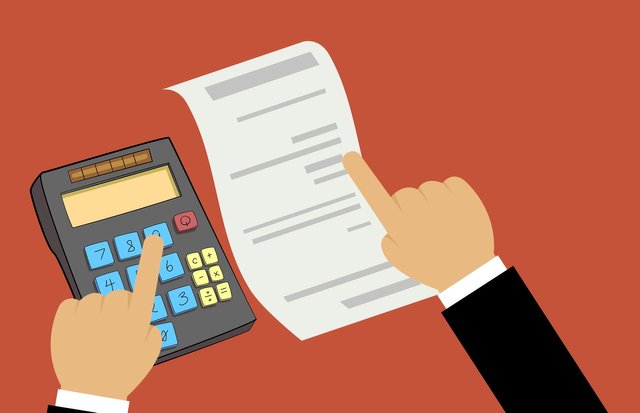
IMAGE CREDIT PIXABAY.COM
Everyone should comprehend and use budgeting as it is an essential part of personal finance. In order to successfully manage your finances and reach your financial objectives, it entails developing a strategy for your income and expenses. In this piece, we'll go over the value of budgeting, how to make one, and some advice for staying on track with it.
Importance of Budgeting.
Making informed choices about your spending requires keeping track of your income and expenses. It enables you to concentrate on what is important and priorities your spending. Making a budget allows you to track your spending and make the required corrections to prevent overspending.
Creating a budget also aids in future planning. Long-term financial success can be achieved by How to Make a Budget in Stages.
There are several stages involved in creating a budget, such as:
- Calculate your income: Determine your overall income, taking into account your salary, bonuses, and any additional sources.
- Expenses list: Make an inventory of every expenditure you have each month, including your rent or mortgage, utilities, groceries, travel, entertainment, and other costs.
3.Categorize your expenses: Categorize your expenses into essential and non-essential categories. Non-essential expenses are optional costs that you can reduce if required, whereas essential costs are those you cannot avoid.
4.Set financial goals: Identify your financial goals, such as paying off debt, saving for retirement, or building an emergency fund.
5.Dedicate money: Dedicate money to your financial objectives and necessities. If there is any money left over, you can use it to save for future objectives or pay for non-essential expenses setting financial objectives and allocating funds accordingly. For instance, you might want to pay off debt, start an emergency fund, or save for a down payment on a house. It can be difficult to save money and move closer to your financial objectives without a budget.
.
IMAGE CREDIT PIXABAY.COM
Tips for Maintaining Your Money.
Making a budget is just the beginning. For your financial objectives to be met, it is essential that you stay within your budget. Here are some pointers to keep you on course:
- Track your expenses: Keep an eye on your expenditures to make sure you aren't going overboard in any one area. To keep note of your spending, you can use spreadsheets or budgeting apps.
- Be sensible: Plan your spending wisely and establish attainable objectives. Setting unattainable objectives could lead to discouragement and eventual budgeting failure.
- Reduce non-essential spending: If you discover that you are overspending in non-essential areas, take steps to reduce those costs.
4.Continually review your budget: Doing so will help you stay on schedule to meet your financial objectives. Make any necessary changes as soon as possible. - Celebrate your successes: Honor your victories along the road. Give yourself a small reward if you meet a financial objective or stick to your spending plan for a month.

image credit pixabay.com
Conclusion.
Everyone should be aware of and use budgeting as it is an essential component of personal money. You can accomplish your financial objectives and successfully manage your finances with its assistance. You can achieve financial success and secure your financial future by adhering to your budget and the steps outlined in this piece.
예산 관리는 모든 사람이 이해하고 실천해야 하는 개인 금융의 중요한 측면입니다. 소득과
지출에 대한 계획을 작성하여 자신의 재정을 효과적으로 관리하고 재정 목표를 달성할 수
있습니다. 이 글에서는 예산 관리의 중요성, 예산을 작성하는 단계 및 예산을 지키는 방법에 대해
논의할 것입니다.
예산 관리의 중요성
예산 관리는 소비에 대한 정보를 얻어 의사 결정을 내리는 것을 도와줍니다. 예산을 작성하면
돈을 어디에 사용하는지 파악하고 필요한 조정을 할 수 있습니다. 예산을 만들면 재정 상황을
파악하고 과소비하지 않도록 조정할 수 있습니다.
또한 예산 관리는 미래를 계획하는 데 도움이 됩니다. 재정 목표를 설정하고 목표에 맞게 자금을
배분하여 장기적인 재정적 성공을 달성할 수 있습니다. 예를 들어, 주택 계약금을 모으거나 빚을
갚거나 비상 기금을 마련하는 등의 목표를 설정할 수 있습니다. 예산이 없으면 돈을 절약하고
재정 목표를 달성하기가 어려울 수 있습니다.
예산을 작성하는 단계
예산을 작성하는 것은 소득과 지출에 대한 계획을 작성하는 것을 포함하여 여러 단계로
이루어집니다.
- 소득을 결정합니다. 급여, 보너스 및 기타 소득원을 포함하여 총 소득을 계산합니다.
- 지출을 나열합니다. 월세/주택 대출, 공과금, 식료품, 교통, 오락 및 기타 지출을 모두
나열합니다. - 지출을 분류합니다. 필수 지출과 필수 지출이 아닌 것으로 지출을 분류합니다. 필수
지출은 피할 수 없는 필수 지출이며, 필수 지출이 아닌 것은 필요에 따라 줄일 수 있는
재량적인 지출입니다. - 재정 목표를 설정합니다. 빚을 갚거나 퇴직 준비를 하거나 비상 기금을 마련하는 등의
재정 목표를 설정합니다. - 자금을 배분합니다. 재정 목표와 필수 지출에 자금을 할당합니다. 남은 돈이 있으면
비필수 지출 또는 미래 지출을 위해 저축할 수 있습니다.
예산을 지키는 방법
예산을 작성하는 것은 중요하지만, 예산을 지키는 것이 더욱 중요합니다. 이를 위해 다음과 같은
방법들을 고려할 수 있습니다. - 정기적으로 예산을 검토합니다. 매월 예산을 검토하여 지출이 계획대로 진행되는지
확인합니다. 이를 통해 필요에 따라 지출을 조정하고 재정 목표에 도달할 수 있습니다. - 지출을 추적합니다. 지출을 추적하여 예산을 지키는 데 도움이 되는 앱이나
소프트웨어를 사용할 수 있습니다. 이를 통해 지출 패턴을 파악하고 조정할 수 있습니다. - 현금을 사용합니다. 신용 카드 대신 현금을 사용하여 지출을 추적하고 예산을 지키는 데
도움이 됩니다. - 비용을 줄입니다. 필요 없는 지출을 줄이고 할인을 활용하여 예산을 줄이는 것이
중요합니다. - 계획을 수정합니다. 생활 상황이 변하면 예산을 수정해야 합니다. 예를 들어, 결혼, 출산
또는 이사가 필요할 경우 예산을 수정해야 할 수 있습니다.
결론적으로, 예산 관리는 개인 금융의 중요한 부분입니다. 예산을 작성하고 지키면 재정 목표를
달성하고 재정적 안정을 유지할 수 있습니다. 예산을 작성하고 지키는 것은 쉬운 일이 아니지만,
이를 위해 위에서 제안한 방법들을 활용하여 개인의 재정 상황을 개선할 수 있습니다